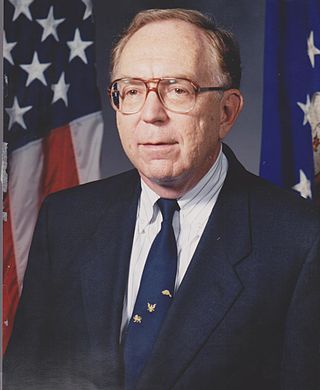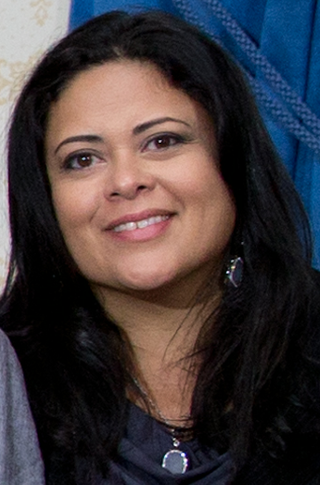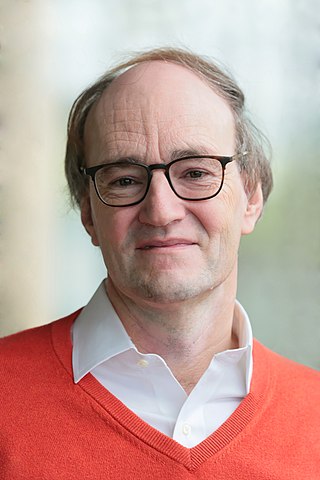Related Research Articles

Edward Albert Feigenbaum is a computer scientist working in the field of artificial intelligence, and joint winner of the 1994 ACM Turing Award. He is often called the "father of expert systems."

In artificial intelligence, symbolic artificial intelligence is the term for the collection of all methods in artificial intelligence research that are based on high-level symbolic (human-readable) representations of problems, logic and search. Symbolic AI used tools such as logic programming, production rules, semantic nets and frames, and it developed applications such as knowledge-based systems, symbolic mathematics, automated theorem provers, ontologies, the semantic web, and automated planning and scheduling systems. The Symbolic AI paradigm led to seminal ideas in search, symbolic programming languages, agents, multi-agent systems, the semantic web, and the strengths and limitations of formal knowledge and reasoning systems.

Judea Pearl is an Israeli-American computer scientist and philosopher, best known for championing the probabilistic approach to artificial intelligence and the development of Bayesian networks. He is also credited for developing a theory of causal and counterfactual inference based on structural models. In 2011, the Association for Computing Machinery (ACM) awarded Pearl with the Turing Award, the highest distinction in computer science, "for fundamental contributions to artificial intelligence through the development of a calculus for probabilistic and causal reasoning". He is the author of several books, including the technical Causality: Models, Reasoning and Inference, and The Book of Why, a book on causality aimed at the general public.

The history of artificial intelligence (AI) began in antiquity, with myths, stories and rumors of artificial beings endowed with intelligence or consciousness by master craftsmen. The seeds of modern AI were planted by philosophers who attempted to describe the process of human thinking as the mechanical manipulation of symbols. This work culminated in the invention of the programmable digital computer in the 1940s, a machine based on the abstract essence of mathematical reasoning. This device and the ideas behind it inspired a handful of scientists to begin seriously discussing the possibility of building an electronic brain.

Alan Richard Bundy is a professor at the School of Informatics at the University of Edinburgh, known for his contributions to automated reasoning, especially to proof planning, the use of meta-level reasoning to guide proof search.

The School of Computer Science is an academic department in the Faculty of Science at McGill University in Montreal, Quebec, Canada. The School is the second most funded computer science department in Canada. As of 2024, it has 46 faculty members, 60 Ph.D. students and 100 Master's students.

Stanley Ann Dunham was an American anthropologist who specialized in the economic anthropology and rural development of Indonesia. She was the mother of Barack Obama, the 44th president of the United States.

Wolfram Burgard is a German roboticist. He is a full professor at the University of Technology Nuremberg where he heads the Laboratory for Robotics and Artificial Intelligence. He is known for his substantial contributions to the simultaneous localization and mapping (SLAM) problem as well as diverse other contributions to robotics.

Maya Kasandra Soetoro-Ng is an Indonesian-born American academic, who is a faculty specialist at the Spark M. Matsunaga Institute for Peace and Conflict Resolution, based in the College of Social Sciences at the University of Hawaiʻi at Mānoa. She is also a consultant for the Obama Foundation, working to develop the Asia-Pacific Leaders Program. Formerly a high school history teacher, Soetoro-Ng is the maternal half-sister of Barack Obama, the 44th president of the United States.
Jonathan Shields Turner is a senior professor of Computer Science in the School of Engineering and Applied Science at Washington University in St. Louis. His research interests include the design and analysis of high performance routers and switching systems, extensible communication networks via overlay networks, and probabilistic performance of heuristic algorithms for NP-complete problems.
Krishna V. Palem is a computer scientist and engineer of Indian origin and is the Kenneth and Audrey Kennedy Professor of Computing at Rice University and the director of Institute for Sustainable Nanoelectronics (ISNE) at Nanyang Technological University (NTU). He is recognized for his "pioneering contributions to the algorithmic, compilation, and architectural foundations of embedded computing", as stated in the citation of his 2009 Wallace McDowell Award, the "highest technical award made solely by the IEEE Computer Society".

Ronald Fagin is an American mathematician and computer scientist, and IBM Fellow at the IBM Almaden Research Center. He is known for his work in database theory, finite model theory, and reasoning about knowledge.

Marta Zofia Kwiatkowska is a Polish theoretical computer scientist based in the United Kingdom.
Anne Elizabeth Condon, is an Irish-Canadian computer scientist, professor, and former head of the Computer Science Department of the University of British Columbia. Her research focuses on computational complexity theory, DNA computing, and bioinformatics. She has also held the NSERC/General Motors Canada Chair for Women in Science and Engineering (CWSE) from 2004 to 2009, and has worked to improve the success of women in the sciences and engineering.
Henry A. Kautz is a computer scientist, Founding Director of Institute for Data Science and Professor at University of Rochester. He is interested in knowledge representation, artificial intelligence, data science and pervasive computing.

Rina Dechter is a distinguished professor of computer science in the Donald Bren School of Information and Computer Sciences at the University of California, Irvine. Her research is on automated reasoning in artificial intelligence focusing on probabilistic and constraint-based reasoning. In 2013, she was elected a Fellow of the Association for Computing Machinery.
Suhayya "Sue" Abu-Hakima is a Canadian technology entrepreneur and inventor of artificial intelligence (AI) applications for wireless communication and computer security. As of 2020, her company Amika Mobile has been known as Alstari Corporation as she exited her emergency and communications business to Genasys in October 2020. Since 2007, she had served as President and CEO of Amika Mobile Corporation; she similarly founded and served as President and CEO of AmikaNow! from 1998 to 2004. A frequent speaker on entrepreneurship, AI, security, messaging and wireless, she has published and presented more than 125 professional papers and holds 30 international patents in the fields of content analysis, messaging, and security. She has been an adjunct professor in the School of Information Technology and Engineering at the University of Ottawa and has mentored many high school, undergraduate, and graduate students in science and technology more commonly known as STEM now. She was named to the Order of Ontario, the province's highest honor, in 2011 for innovation and her work in public safety and computer security technology.

Richard Eugene Neapolitan was an American scientist. Neapolitan is most well-known for his role in establishing the use of probability theory in artificial intelligence and in the development of the field Bayesian networks.

Boi Volkert Faltings is a Swiss professor of artificial intelligence at École Polytechnique Fédérale de Lausanne.
Thomas L. Griffiths is an Australian academic who is the Henry R. Luce Professor of Information Technology, Consciousness, and Culture at Princeton University. He studies human decision-making and its connection to problem-solving methods in computation. His book with Brian Christian, Algorithms to Live By: The Computer Science of Human Decisions, was named one of the "Best Books of 2016" by MIT Technology Review.
References
- ↑ Ramos, Connie (2008). "Our Friend Barry: Classmates' Recollections of Barack Obama and Punahou School"
- ↑ Yes We Can: A Biography of Barack Obama by Garen Thomas, 2008
- ↑ Obama's link to Hawaii not ignored by islanders - The Washington Post, Apr 30, 2013
- ↑ George E. Forsythe Award, 1983 shared, "Optimal paths in graphs with stochastic or multidimensional weights," CACM 26:9, 1983.
- 1 2 "Professor Loui's Home Page at Washington University in St. Louis" . Retrieved February 23, 2012.
- ↑ Pearl, Probabilistic Reasoning in Intelligent Systems, 1988, p. 282 "Harsanyi and Loui include computational considerations as part of the pragmatics of belief acceptance."
- ↑ "Ronald Loui - The Mathematics Genealogy Project". www.mathgenealogy.org. Retrieved 2022-08-21.
- ↑ Journal of Philosophy v 90 no. 3, 1993.
- ↑ "Ronald Prescott Loui". Docslib. Retrieved 2022-08-21.
- ↑ e.g. J. Klinger's thesis abstract, "the most significant scientists in the field among others Dung, Pollock, Loui, Prakken", Tech. U. Munich, 2023.
- ↑ "In Praise of Scripting," IEEE COMPUTER, 2008.
- ↑ "Methods, systems, and devices using reprogrammable hardware for high-speed processing of streaming data to find a redefinable pattern and respond thereto – US Patent 7093023 Abstract". Patentstorm.us. Archived from the original on June 12, 2011. Retrieved March 16, 2011.